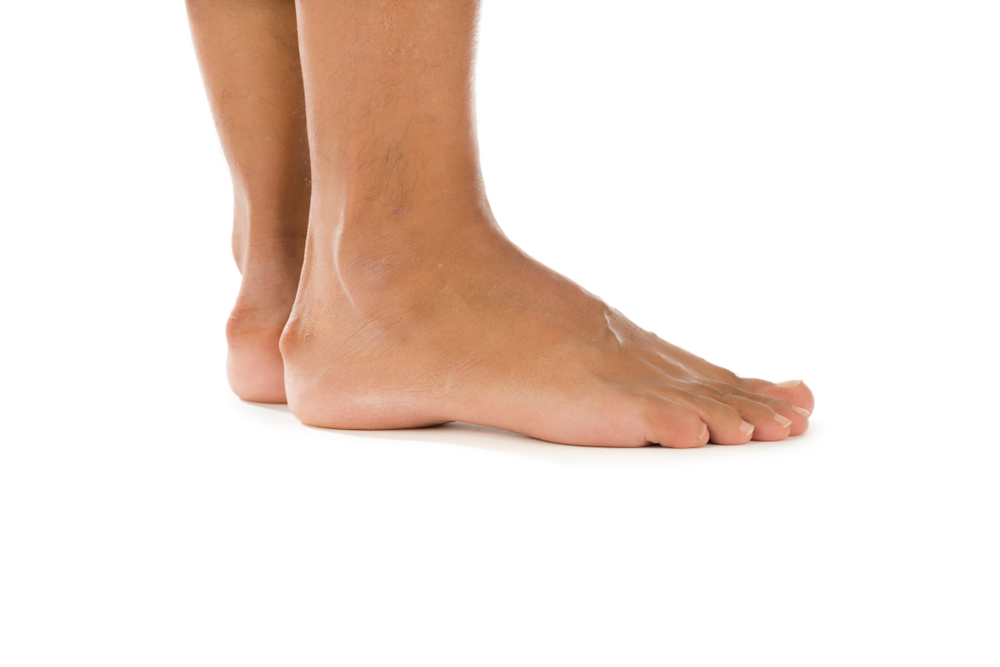Haglund’s Deformity
Rachel Miller is a highly experienced podiatrist who treats many patients for Haglund’s deformity.
Haglund’s deformity is caused by an abnormality, an enlargement of the bone and tissues on the back of your heel where the Achilles tendon is located. The enlargement can cause your heel to rub against your shoes, leading to irritation of the tissue and the development of other possibly painful conditions.
Please see below if you want more detailed explanation of Haglund’s deformity, its symptoms, causes and treatment.
Call the Clinic for an appointment
Haglund’s Deformity
Symptoms of Haglund’s deformity
Symptoms can include:
- pain
- swelling
- redness
- your joint may be stiff
- calluses can form where the shoe is rubbing against your shoe
Haglund’s deformity can lead to bursitis, an inflammation of the small sacs (bursa), which are found in the Achille’s tendon and heel, as well as in other parts of your body.
The condition can be found in both feet.
Causes of Hugland’s deformity
Hagland’s deformity can be caused by repeated activities such as:
- running
- gardening
- sitting or standing the wrong way at work or at home
- by an increase in weight
- injury
- some medications can aggravate the condition
When the heel becomes inflamed, calcium can build up in the heel bone enlarging the growth and increasing the pain. The condition can develop in anyone but is most common in women and especially those who wear stiff, closed-heel shoes, pump style high heels. Haglund’s deformity is sometimes referred to as “pump pump”.
Risk factors include:
- The condition can be hereditary, with feet of a certain structure being susceptible to develop the deformity.
- Those with a high arch are more prone to the condition.
- Having a tight Achilles tendon makes you more susceptible.
- With feet that supinate, roll outward when walking.
- Those already with a prominent heel bone.
Treatment of Haglund’s deformity
If you do suffer from heel pain and it persists, you should see an experienced podiatrist who can diagnose your condition. You might benefit from a specialist biomechanical assessment.
Treatment depends on how Haglund’s deformity might of developed and might include:
- rest
- footwear advice
- heel pads
- ice packs
- self-help advice
- padded socks
- tailored exercises and stretching regimes
- anti-inflammatory medication
- orthotic insoles
A bespoke orthotic insole can be prescribed as part of your treatment plan. An orthotic can help support and cushion the foot and may reduce pain on impact when walking and running.
Call the Clinic for an appointment
Rachel Miller is a highly experienced podiatrist and a specialist in biomechanics who sees many patients for Haglund’s deformity. Her clinic, Highgate Podiatry, is in Highgate Village, 14 Pond Square, N6 6BA, London. Clinics are held every Wednesday, Thursday, Friday and Sunday. Please contact the clinic for an appointment on 020 8348 5553. For the clinic’s address, map and directions see the Contact page and for information about orthotic insoles and biomechanics see the Biomechanics page.
Links to Services:
Links to Conditions Treated Include:
- Achilles tendinopathy
- Ankle fractures
- Ankle injuries
- Arthritis
- Back pain
- Bunions
- Corns/Calluses
- Diabetic care
- Flat feet
- Fungal toenail/athlete’s foot
- Haglund’s deformity
- Hammer toe and mallet toe
- Heel pain
- High arches
- Hypermobility
- Ingrown toenail
- In-toeing, toe walking, curly toes
- Knee injuries
- Metatarsalgia
- Morton’s neuroma
- Osgood-Schlatter disease
- Overuse injuries
- Patella tendinopathy
- Patellofemoral pain syndrome
- Plantar fasciitis
- Sever’s disease
- Sprained ankles
- Stress fractures
- Tarsal tunnel syndrome
- Toenails






